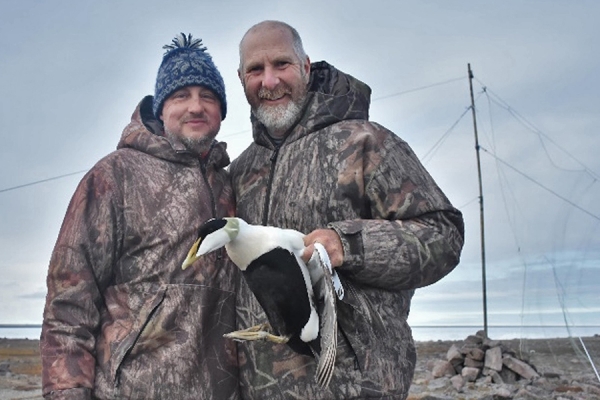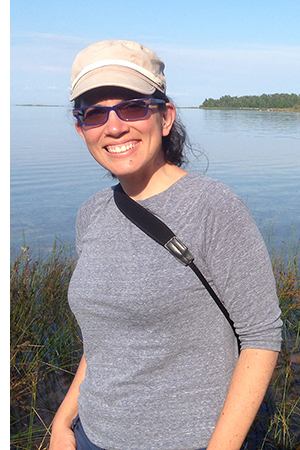 UWindsor professor Oliver Love and Grant Gilchrist of Environment and Climate Change Canada are part of a team studying Arctic species of concern.
UWindsor professor Oliver Love and Grant Gilchrist of Environment and Climate Change Canada are part of a team studying Arctic species of concern.
The way forward in tackling the diversity of issues facing wildlife in the Canadian Arctic, say University of Windsor researchers Christina Semeniuk and Oliver Love, is in strong collaboration, integration of both scientific and Indigenous approaches, and seeking community-based solutions.
Researchers from the Department of Integrative Biology and the Great Lakes Institute for Environmental Research (GLIER), the two are part of a team examining whether species of such as polar bears, seabirds, and shorebirds have the capacity to respond to rapid change in a historically stable Arctic.
The project has received a third-year renewal of a $360,000 research award for collaboration with Environment and Climate Change Canada to explore how the behavioural and physiological responses of wildlife determine whether they succeed or fail.
“Essentially, we can tackle three key questions with this type of multi-disciplinary teamwork approach,” says Dr. Love, Canada Research Chair in Integrative Ecology. “How do organisms respond to climate change? Which individual, population or species responses translate into success? Can we then predict who will be the winners and losers as the Arctic continues to change?”
 According to Dr. Semeniuk, a predictive ecologist, the range of inputs is what really sets this work apart from past projects.
According to Dr. Semeniuk, a predictive ecologist, the range of inputs is what really sets this work apart from past projects.
“We can use a diversity of data collected over decades to build predictive models that forecast how and why individuals, populations, and species will be affected by current and projected climate change,” she says.
The team also includes research scientists from Environment and Climate Change Canada:
- Grant Gilchrist, an authority on Arctic seabirds;
- Dominique Henri, a social scientist interested in Indigenous knowledge systems and northern sustainability;
- Paul Smith; a specialist in Arctic shorebirds; and
- Evan Richardson, an expert in polar bears.
Climate change is a complex and multifaceted challenge which requires diverse and comprehensive data and inputs to inform and enable the scientific community to come up with solutions that mitigate its impact, says K.W. Michael Siu, UWindsor vice-president, research and innovation.
“This requires extensive collaboration and teamwork, and I thank ECCC in its generous funding to Drs. Semeniuk and Love in their work,” Dr. Siu says.
Dean of science Chris Houser says building strong and sustainable partnerships with government and Indigenous communities is critical to address climate change impacts in the Arctic and throughout Canada.
“This study is an exciting and important opportunity to apply leading-edge science at the University of Windsor to wildlife management and support community-based solutions,” he says.
Semeniuk and Love hope the ongoing success of this collaboration demonstrates the importance of generating formal, long-term funding partnerships between academia, government, and northern communities so that teams can work together to study emerging issues facing at-risk Arctic wildlife.
“Investment that supports integration of the complementary approaches of these three groups is key to assessing how Arctic wildlife and the communities that depend on them can continue into the future,” says Semeniuk.
